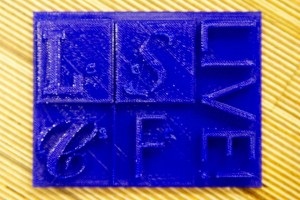By Tessa van Hoorn
Staff Writer
The Knowledge Café, an initiative of the Teaching and Learning Society and the Zeeuwse Bibliotheek, is all about learning interesting things in a relaxed atmosphere, where experts and the public meet to talk and discuss about specific topics. Earlier Knowledge Cafés were on the riots in Turkey as well as “Technique and the Future” (where they had a demonstration of a 3D printer!).
The theme of last Friday’s Knowledge Café (29th of November) was media literacy and the use of media in healthcare. A range of points was discussed, among which the use of apps, reliability, and what we can expect in the future.
There are tons of medical apps for you to use on your smartphone or tablet. Some are there to make life easier for you (for example to quit smoking or lose weight), others stimulate transferring information between people from any background, while the last category of apps encourage you to find your own solutions to a problem.
One of the guests this evening spoke  about his own app. Joost Platel created not just an app, but a worldwide movement that is all about collecting data about yourself. For example, Plattel himself has data about sleep, which he collected over the course of 400 days. Now, here is something that could be useful for all of us! With this data, he found out that certain settings for his laptop and phone would make it easier for him to fall asleep, thus making him less sleep deprived in the long run.
about his own app. Joost Platel created not just an app, but a worldwide movement that is all about collecting data about yourself. For example, Plattel himself has data about sleep, which he collected over the course of 400 days. Now, here is something that could be useful for all of us! With this data, he found out that certain settings for his laptop and phone would make it easier for him to fall asleep, thus making him less sleep deprived in the long run.
Something that also came up was Watson, a super computer that can collect huge amounts of data and then analyze it (statistics producing themselves, how wonderful!). The only thing Watson cannot do yet, is interpret the results of its analysis, for which we still need an expert or doctor. Even though it is expected that Watson, at some point, will be able to interpret the results as well, it was deemed very unlikely that the doctor ever would disappear. A doctor will be able to place the results in your specific context, which Watson will not be able to do.
This brings us to the conclusion of the evening: apps, the media and new technologies like Watson will be interesting additions, something to embrace if we take the positive aspects of it, but it will never replace doctors. They were very uncertain about the possibility of e-health making healthcare cheaper. In the end it seems it all depends on the people using it; if we will use it in a proactive way, it could mean we will not need the doctor or medicine so often. On the other hand, if we start to over measure ourselves, it could just happen that the overload of data and panic arising when being overly occupied with health would make healthcare more expensive.
All in all, a very interesting evening! The next knowledge Café on December 20th, will be about “getting 100 [sic] in a healthy way” with our own Professor Dr. Ger Rijkers. Be aware though, the Knowledge Cafés are in Dutch.
Tessa van Hoorn, class of 2015, is a Social Science major from Haaften, The Netherlands.
